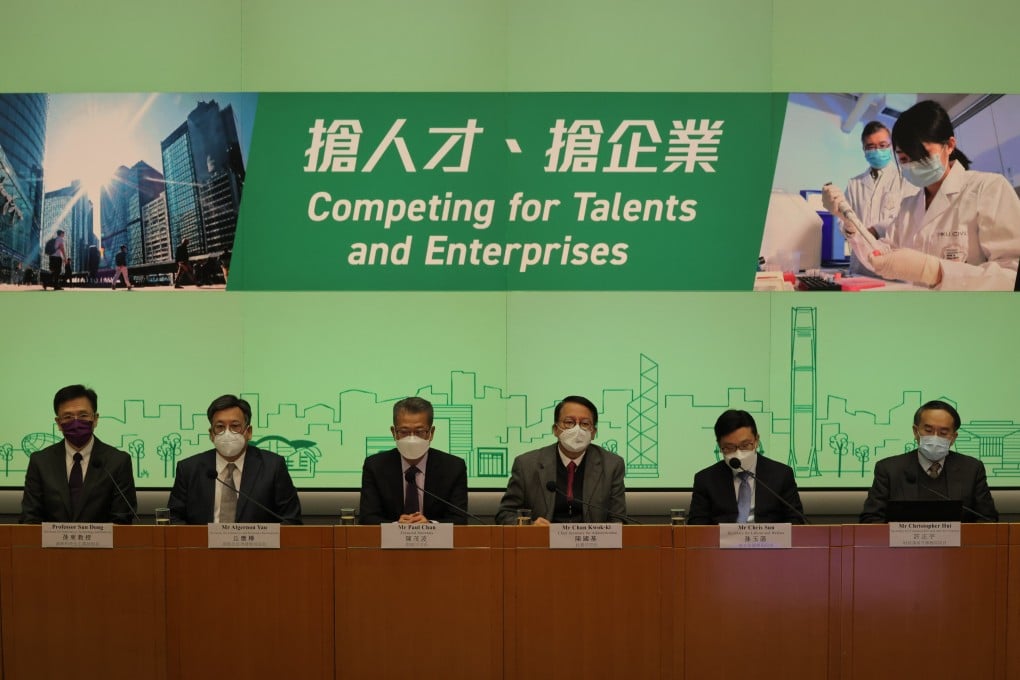Advertisement
Opinion | Laissez-faire no more: Hong Kong’s aggressive tech hub plans come not a moment too soon
- A mantra of ‘small government, big market’ has held Hong Kong back while its regional peers have made impressive strides in innovation
- But now an industrial policy is finally taking shape, with Beijing’s support and backed by a raft of measures and generous funds
Reading Time:4 minutes
Why you can trust SCMP
15

Public attention on Financial Secretary Paul Chan Mo-po’s budget for 2023-24 has been riveted on the issue of consumption vouchers. Pundits have overlooked a watershed development, first announced in Chief Executive John Lee Ka-chiu’s policy address delivered last October, and given full financial support in Chan’s budget, to put into effect what will be Hong Kong’s first-ever industrial policy.
As long-standing industrial policy agnostics, the Hong Kong authorities have never adopted an industrial policy, even though national industrial strategies have been practised by scores of Asian economies to jump-start their recovery after World War II.
Singapore, often held as a mirror of where Hong Kong comes up short, has a policy of keeping about 20 per cent of its economy in manufacturing. It has pushed ahead aggressively to lure hi-tech industries to its country, with considerable success.
In contrast, Hong Kong has for a long time remained locked in a simplistic “small government, big market”, “maximum support, minimum intervention” mantra.
Industrial strategies adopted by emerging Asian economies in the post-war years need to be distinguished from the protectionist industrial policy espoused by the Biden administration – through the passage last year of legislation such as the Chips and Science Act and the Inflation Reduction Act – to out-compete China.
Billions will be funnelled into R&D in critical industries, notably semiconductors, to widen the US’ technological lead. Advanced semiconductors and chip-making equipment, whether made in or outside the US, as long as American tools and software are used in their design or manufacture, will be banned from export to China. Allies are being asked to do the same.
Advertisement
